Durham coastline: Concern Storm Babet will escalate cliff erosion
- Published
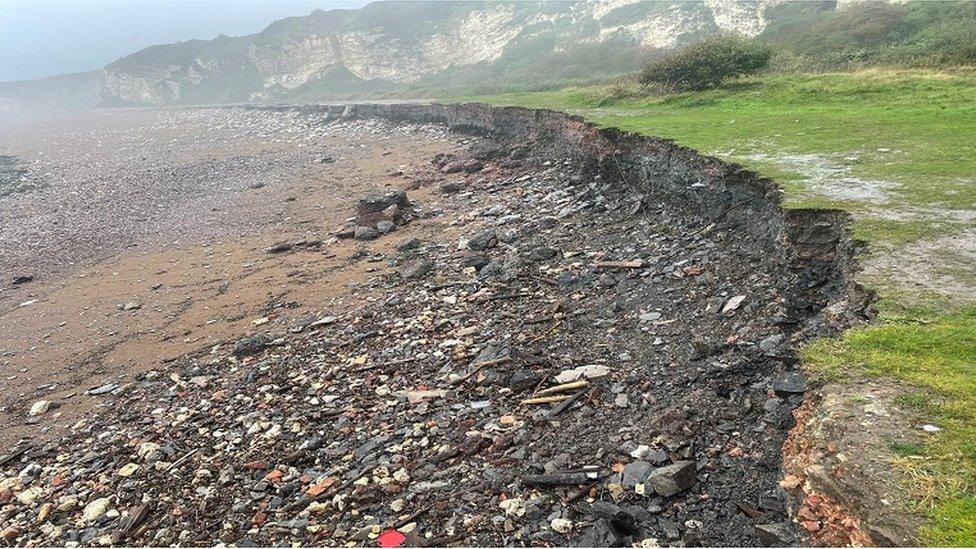
The coal platform suffered some erosion on Thursday 19 October
Coal sediment washed away by Storm Babet has left the County Durham coastline exposed to further erosion, according to university experts.
A team from Newcastle University has been documenting the changes to Seaham's industrial coastline.
Sediment that formed over tonnes of coal which was dumped along a 12km (7 mile) stretch of beach from the former coalfields has been washed away.
It is feared further winter storms could penetrate the exposed coastline.
A team from the university braved the elements during the storm to document the erosion to the coal platform at Blast Beach.
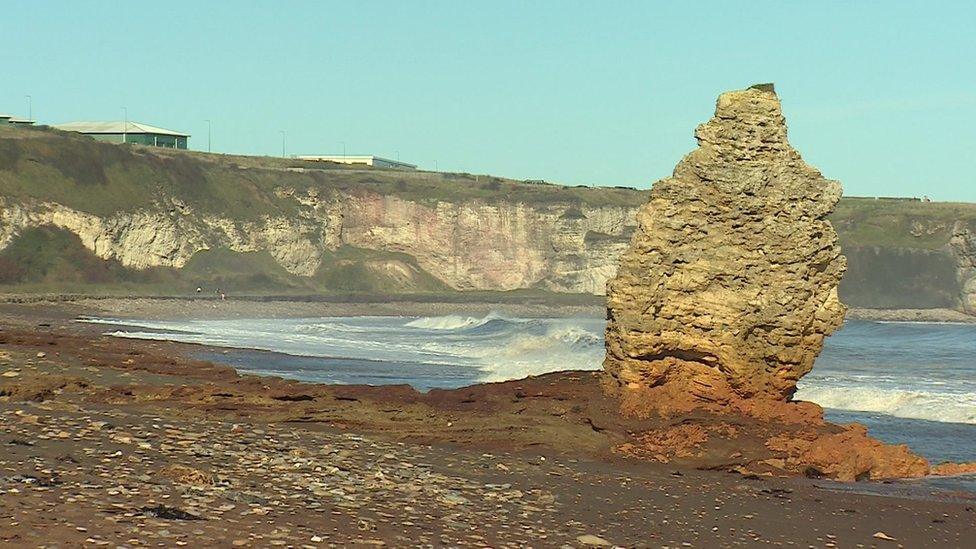
The brown layers of old coal spoil are visible on the rock formation
Dr Seb Pitman, lecturer in physical geography, said: "We are approaching a point where the coal waste has almost entirely disappeared, and this could lead to active erosion of the cliffs behind it in the coming decade.
"We saw waves over 4m (13ft) high for 72 hours and we saw waves up to 8.5m (28ft) high, so what that's done is really strip away that sediment."
He said seeing the sediment disappear was "problematic" as it had left the coast exposed to more storms over the winter.
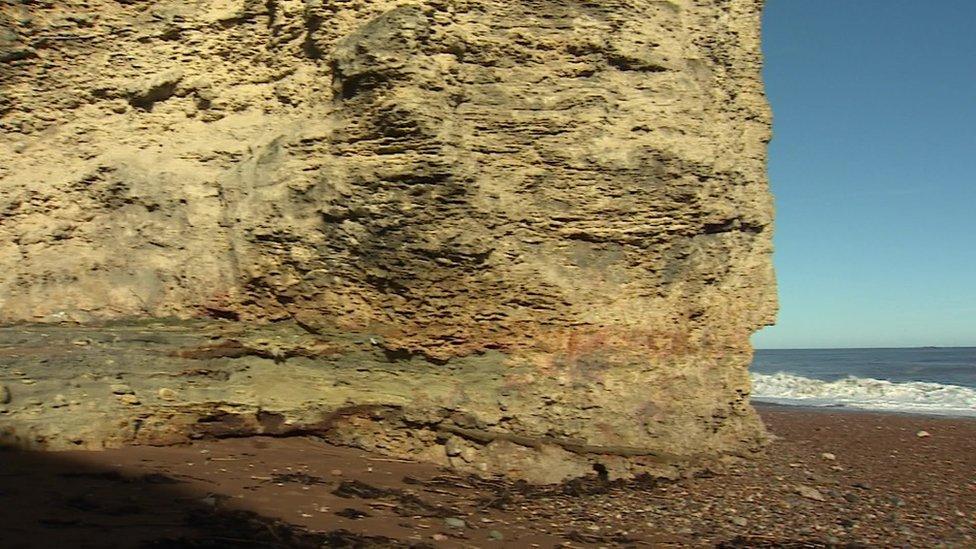
Visible erosion from the red-brown line on the cliffs at Seaham
For almost a century, approximately 2.5 million tonnes of coal spoil was dumped on to the coastline annually from the active coalfields.
Between 1997-2002 the coastline was cleaned up and regenerated.
But the storm has left older brown coal spoil visible along the shoreline, with the coal platform eroded as much as 2m (6ft) to the north of Blast Beach.
Fragile and toxic coal waste deposits now sit just above the high-water mark.
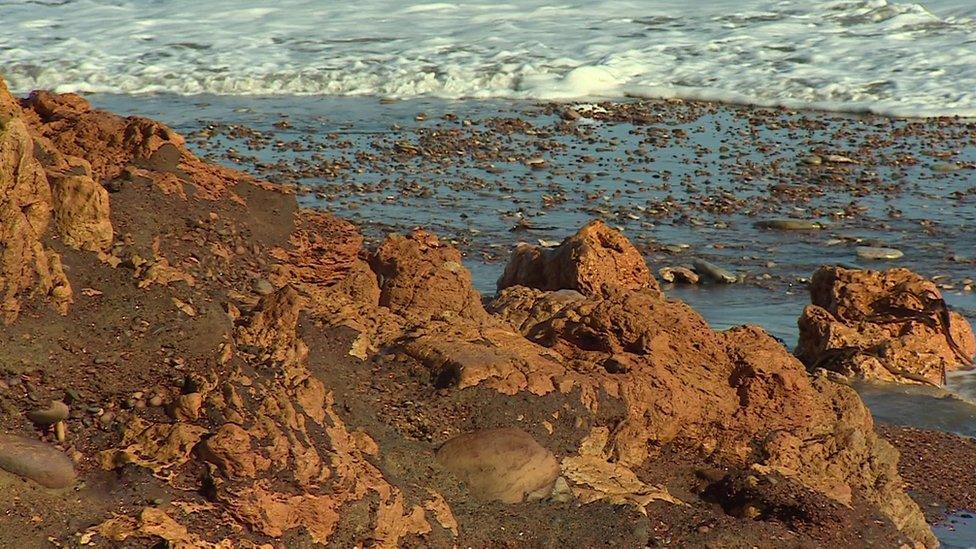
Older coal spoil deposits are visible at Seaham after Storm Babet washed away sediment
Dr Pitman added: "What we can see is chunks of that coal platform which is quite polluted has been ripped up and chucked either over the beach or back off shore."
He fears the changes caused by Storm Babet could lead to "active erosion" of the coastal cliffs "in the coming decade."
The team will continue to monitor the impact of the storm.

Follow BBC North East & Cumbria on Facebook, external, X (formerly Twitter), , externaland Instagram, external. Send your story ideas to northeastandcumbria@bbc.co.uk, external.
Related topics
- Published11 October 2023

- Published12 July 2023
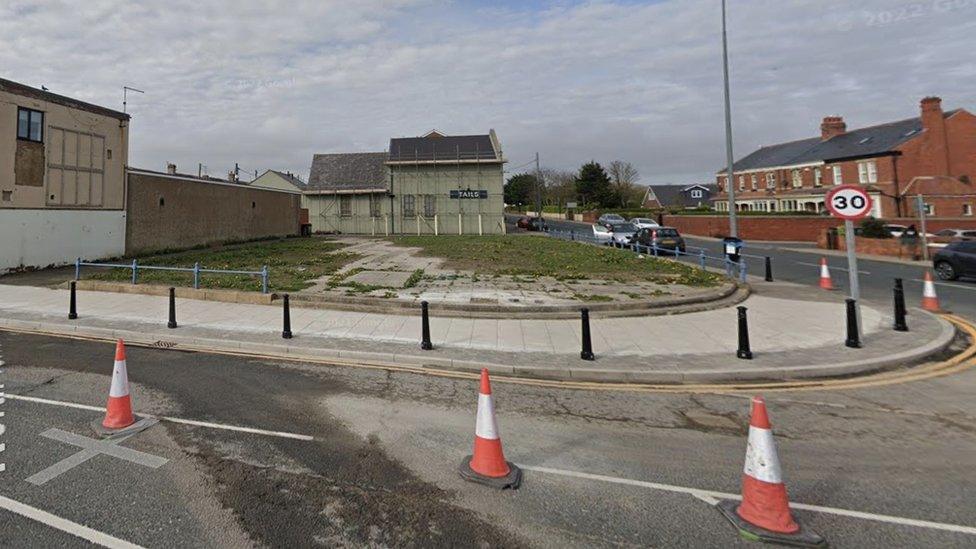
- Published20 July 2022
- Published30 March 2021
